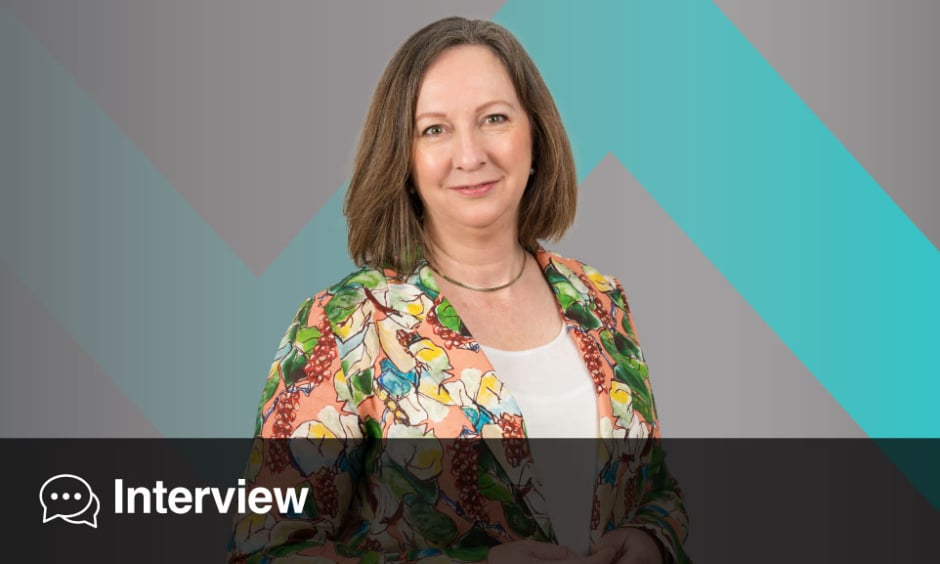Catherine Stedman | Clinical Director of Gastroenterology, Christchurch; Clinical Professor of Medicine, University of Otago, Christchurch, New Zealand; Past President, New Zealand Society of Gastroenterology.
Citation: EMJ Gastroenterol. 2025; 14[1]:51-52. https://doi.org/10.33590/emjgastroenterol/ZECS3599
![]()
What initially sparked your interest in gastroenterology and hepatology, and what motivates you to continue working in this field today?
I love the huge variety in the specialty, including the balance of inpatient and outpatient work, acute and routine endoscopy procedures, and also the complexity and challenge of managing difficult liver patients.
You’ve contributed significantly to the development of hepatitis C therapies. What do you see as the most important breakthroughs in hepatitis C virus treatment during your career?
The most important breakthrough is the development of a highly effective, well-tolerated oral antiviral therapy that cures almost everyone with hepatitis C. Another major advancement has been being able to safely treat and cure people with more advanced liver disease from hepatitis C, which prolongs life and averts the need for liver transplantation in many people.
From a pharmacology perspective, what lessons can we apply from hepatitis C drug development to other areas of gastroenterology or hepatology?
One of the key strategies we found was to look outside our own speciality and see how the approach to other viruses had evolved effectively. In the case of hepatitis C, we specifically learned from HIV management strategies, and this led to major progress. For other areas of gastroenterology or hepatology, I think we need to look at successful approaches to other diseases that might have similar pathogenic factors, and be willing to consider treatment strategies that are similar.
In your clinical practice, what changes have you observed in the way patients with hepatitis C are diagnosed, managed, and supported over the past decade?
There have been many changes over the past decade. Hepatitis C is now diagnosed by a wide range of healthcare professionals and even peer workers, with the initial diagnosis now often being through a point-of-care test rather than a venesection. This testing now often occurs in the community, and most treatment also occurs in the community setting rather than specialist hospital practice.
I think one huge change is how I communicate with people regarding a new diagnosis of hepatitis C. I now tell them that this is a very positive diagnosis for the cause of their liver disease, as hepatitis C is now an easily curable disease with a short course of tablets, rather than a negative diagnosis with stigma attached.
Are there particular barriers in New Zealand, or globally, that still hinder access to life-saving hepatitis C treatments?
I think that the persistence of some older perceptions and stigma among healthcare professionals, and even patients themselves, acts as a significant barrier to patients receiving appropriate testing for hepatitis C. Because some people are not perceived to be ‘at risk’, they are sometimes not offered appropriate diagnostic testing, and as a result, their access to treatment is delayed.
Beyond hepatitis C, where do you see the next big therapeutic breakthroughs in the field?
Within hepatology, I think the next big therapeutic breakthrough is the development of effective drugs to treat metabolic dysfunction associated steatotic liver disease. There has been a huge unmet need in this area for decades, and it is fantastic to now see therapy that is effective, even if it is not quite the cure that we have for hepatitis C. Some of the newer approaches to hepatitis B are also exciting and hold great promise for achieving a functional cure.
You were the first female gastroenterologist to become a professor of medicine in New Zealand. What did that milestone mean to you personally, and what impact has it had on the field?
It has been a great honour to become the first female gastroenterologist to become a professor of medicine in my country. As a younger woman, I never really expected this to happen, as I was simply focused on trying to meet the unmet clinical need in my day-to-day medical practice and find solutions for my patients, as well as balancing this with my family and personal life. The promotion to professor has given me a sense of recognition for my work and has also made it easier for me to take up other leadership opportunities, such as President of the New Zealand Society of Gastroenterology (NZSG). I really hope that this will make it easier for younger women to consider an academic medical career and see it as something that is achievable for them to do as well.
What advice would you give to young women pursuing careers in gastroenterology or academic medicine?
Gastroenterology is a wonderful specialty, and I think that academic medicine offers a degree of flexibility and reward that is greater than a career focused solely on clinical medicine. Combining academic and clinical medicine certainly increases the pressures and challenges of life at certain times, but it is highly rewarding, improves patient care outcomes, and works surprisingly well in the earlier phase of life with a young family.








